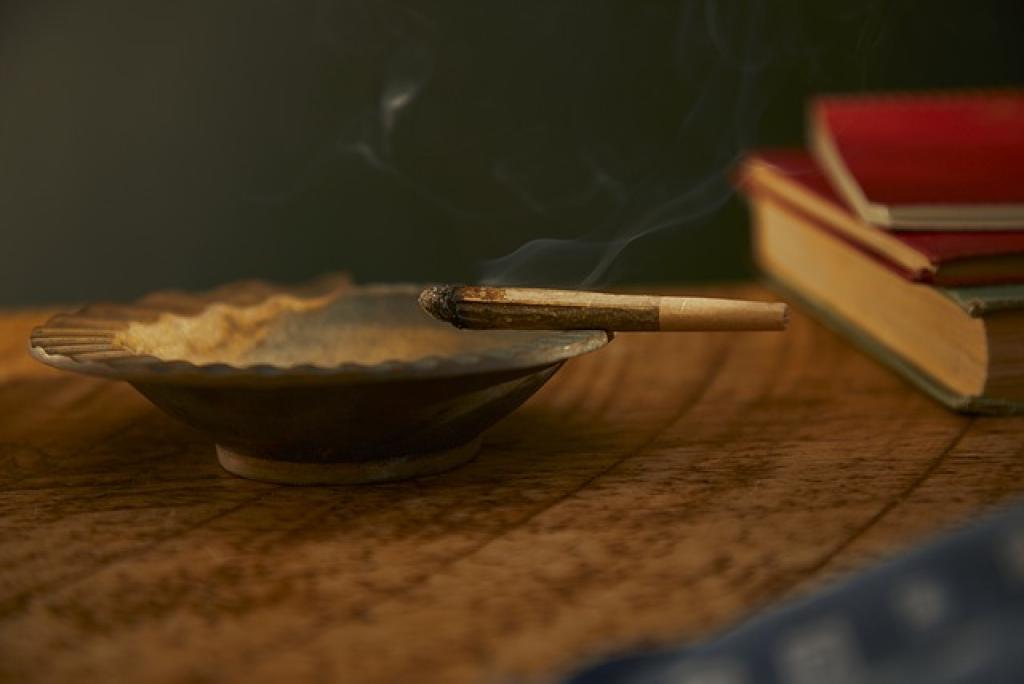Have you ever wondered what happened after the green light was given to CBD and marijuana? This decision didn’t just change the rules; it sparked a wave of economic growth and societal shifts.
Imagine new businesses popping up, jobs being created, and the gears of the economy turning in ways we hadn’t seen before. It’s like watching an entire industry sprout from the ground overnight.
On the flip side, communities and lifestyles are evolving. The stigma once tied to these plants is fading, and discussions around mental health, wellness, and medical benefits are more open than ever.
Let’s dive into how this bold move reshaped our world, one plant at a time.
Impact of Legalizing CBD on the Economy
Legalizing CBD brought about a dynamic shift in our economic landscape. Small businesses flourished as entrepreneurs jumped at the chance to introduce innovative CBD products. From oils and edibles to skincare, the market was suddenly bursting with creativity.
Think about the job opportunities this new industry created. Farmers, manufacturers, retailers, and even specialized consultants found new avenues to explore. It’s like an entirely new economic ecosystem came to life.
Boost in Tax Revenue
Governments also felt the positive effects. Legal sales translated to significant tax revenue, which could be funneled back into public services like education and healthcare. It’s a win-win scenario where both the economy and the community benefit.
Investment opportunities blossomed, drawing interest from both big corporations and small investors. This influx of capital continuously fuels growth and innovation, creating a cycle of economic prosperity.
Another key point is, the legal CBD market helped in curbing the illegal trade, shifting profits from the black market to legitimate businesses. This move not only boosts the economy but also enhances safety and quality standards for consumers.
In essence, the legalization of CBD isn’t just about the products—it’s about the vast ripple effect on our economy and the opportunities that continue to emerge.
How Has Marijuana Legalization Changed Consumer Behavior?
With marijuana legalization, consumer behavior has witnessed a remarkable transformation. Suddenly, people who may have been hesitant about using marijuana have felt more at ease exploring its benefits in a regulated environment. It’s like opening a door to curiosity and reduced stigma.
Diversity in Product Choices
Consumers now have access to a massive array of products beyond the classic joint. Edibles, tinctures, and topicals are just the beginning. This diverse range means people can choose the form that best fits their lifestyle, whether it’s discreet gummies or therapeutic balms.
Safety has become a priority. Legalization ensures that products are tested for quality and potency. This transparency empowers consumers to make more informed choices, sidestepping the risks associated with unregulated sources.
Interestingly, there’s been a shift towards more conscious consumption. People are looking at marijuana not just for recreation but also for wellness. They’re interested in how specific strains and products can help with stress relief, pain management, or sleep issues. This mindset paves the way for a more educated and responsible user base.
Social Dynamics
Social behaviors around marijuana use have also evolved. It’s becoming more socially acceptable to discuss and use marijuana openly, similar to how one might enjoy a glass of wine. This cultural change fosters greater community acceptance and reduces previous misconceptions and biases.
In essence, the way consumers view and use marijuana has drastically changed. It’s not just about availability; it’s about choice, safety, and a deeper understanding of what marijuana can offer in daily life.

The Social Implications of Cannabis Legalization
Cannabis legalization comes with a slew of social implications that are changing the fabric of communities. One of the most significant shifts is the reduction in the number of marijuana-related arrests and incarcerations. This change has profound effects, especially in communities disproportionately affected by previous drug policies.
With fewer arrests, resources once tied up in the criminal justice system can be redirected to other community needs. Law enforcement can focus on more serious crimes, potentially making neighborhoods safer and more vibrant.
Legalization has also fostered more open conversations about cannabis. Families and friends can discuss its use without the fear of legal repercussions. This openness can lead to better education about responsible consumption and awareness of its medicinal benefits.
There’s also an economic angle. Legal cannabis markets create jobs, from cultivation to retail. These jobs can boost local economies, and tax revenues from cannabis sales fund public services like schools and infrastructure. It’s a win-win scenario for many regions.
Culturally, we’ve seen a shift too. Cannabis use is becoming more mainstream and socially accepted, similar to alcohol. This shift can help to erase the longstanding stigma associated with its use.
Challenges and Benefits of Regulating the CBD Industry
The CBD industry has boomed recently, but with rapid growth comes the need for regulation. Regulation helps ensure product safety and consistency, which is crucial for consumer trust. However, this is easier said than done.
One major challenge is the sheer diversity of CBD products on the market. From oils to edibles and skincare, the variety is staggering. Ensuring that all these products meet safety standards requires rigorous testing and certification processes, which can be complex to enforce universally.
Another hurdle is misinformation. With CBD hailed as a cure-all in various circles, clear and accurate labeling is essential. Regulations can ensure that companies provide correct information, avoiding exaggerated claims and helping consumers make informed choices.
Despite these challenges, regulation also brings several benefits. It helps to establish quality standards, which can lead to safer and more effective products. Consumers will have more confidence in what they’re buying, knowing that products meet certain criteria.
Economic Boost
Furthermore, regulating the CBD industry can stimulate economic growth. Clear guidelines can pave the way for legitimate businesses to thrive, creating jobs and generating tax revenues. This formal structure benefits everyone from producers to consumers and the state.
Trust in the marketplace is another significant benefit. With proper regulation, the fear of contaminated or substandard products decreases. People new to CBD can explore its benefits without worrying about the credibility of the products they purchase.
So, while the road to a fully regulated CBD industry is fraught with challenges, the potential benefits far outweigh the difficulties. Regulation promises a safer, more reliable market that could greatly benefit both consumers and the economy.
Addressing Public Health Concerns Post-Legalization
As CBD becomes more regulated and mainstream, addressing public health concerns is of utmost importance. Ensuring that consumers use CBD safely and effectively should be a primary focus.
One key concern is proper dosage. Even though CBD is non-intoxicating, improper dosing can lead to unwanted effects like drowsiness or digestive issues. Clear guidelines and educational resources can help users understand the right dosage for their needs.
Quality Control
Another public health concern is the risk of contamination. Since CBD products come from plants, they can contain pesticides, heavy metals, or mold if not properly monitored. Regular testing and quality control are crucial to prevent these issues.
It’s also vital to consider interactions with other medications. CBD can interact with various prescription drugs, potentially altering their effectiveness. Public awareness campaigns and consultations with healthcare providers can help mitigate these risks.
Public confusion about the difference between CBD and THC can also impact health. Some consumers might mistakenly believe CBD products can cause a high or lead to addiction. Clear labeling and public education can clarify these misconceptions, helping people use CBD responsibly.
The Economic Future with Expanded Legalization
The economic potential of expanded CBD legalization is enormous. As more regions adopt CBD-friendly legislation, the industry is set to skyrocket.
First off, job creation is a significant benefit. From cultivation and manufacturing to marketing and retail, the entire supply chain offers a multitude of employment opportunities. This growth can provide a substantial boost to local economies.
Investments are pouring in, too. Entrepreneurs and big corporations alike are eager to get a slice of this green pie. This influx of capital not only supports new CBD ventures but also encourages technological innovations, making production more efficient and sustainable.
Local farmers stand to gain as well. With an increase in demand for hemp, they have the chance to diversify their crops. This can lead to more stable incomes and support sustainable agricultural practices.
Tax revenues from CBD sales provide another economic boost. Governments can use these funds to support public services, such as healthcare and education, ultimately benefiting society as a whole.
International trade is also on the horizon. As nations worldwide start to embrace CBD, the global market expands, offering endless opportunities for international partnerships and collaborations.
The future looks bright for the CBD industry. With expanded legalization, we can expect robust economic growth, benefiting communities and consumers alike.
The Bottom Line: A Holistic View of Legalization Effects
When you look at the big picture, the expanded legalization of CBD holds promise on multiple fronts. Economically, it creates jobs, attracts investments, and offers farmers new opportunities. Additionally, it generates tax revenues that can bolster public services like healthcare and education.
Health-wise, CBD has vast potential, from easing chronic pain to reducing anxiety and aiding sleep. As research progresses and more people gain access to reliable, regulated CBD products, the overall public health benefits will likely increase.
Socially, legalization promotes a more progressive view on plant-based medicine. This shift could dismantle outdated stigmas and encourage a more open-minded approach to health and wellness.
And another thing to keep in mind is that, the environmental impact shouldn’t be overlooked. Hemp is a sustainable crop that can improve soil health and requires fewer resources compared to other agricultural products. Its legalization could push forward more eco-conscious farming methods.
All these aspects show that the ripple effects of CBD legalization are wide-ranging. From economic growth to health improvements, and even environmental gains, the benefits touch many facets of society.
In summary, the expanded legalization of CBD presents a win-win situation for numerous sectors. It’s not just about the financial perks but also about paving the way for a healthier, more sustainable, and socially progressive future.






